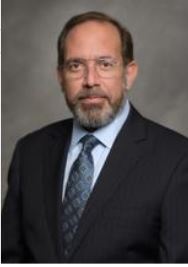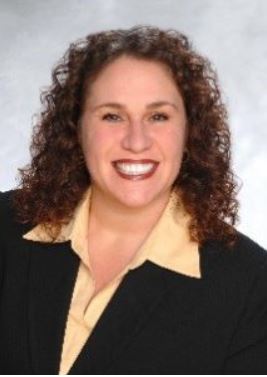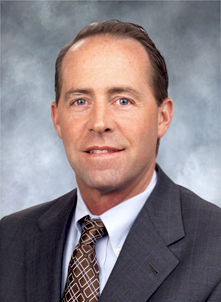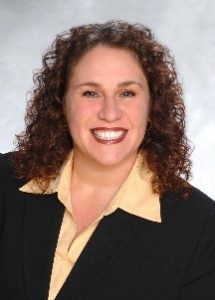NEW CALIFORNIA LAWS FOR 2025 FOCUS ON CANNABIS CAFES, PARKING RULES, RETAIL THEFT, AND LAWSUIT REFORM
Barry A. Bradley, Esq., Bradley, Gmelich + Wellerstein, CALSAGA Legal Advisor
Governor Gavin Newsom signed more than 100 bills last year that went into law January 1st. Now that we’re through the New Year festivities and reality has set in, here are a few of the highlights that may impact you in both your personal and professional life.
Huh? Coffee Shops Don’t Necessarily Sell Coffee Anymore?
With the legalization of cannabis cafes in California over the past decade, those business owners were forbidden from selling food prepared on the premises. Well, the munchies have won. Thanks to AB 1775, the Coffee Shop scene will be similar to those in Amsterdam. Yes, soon patrons will be able to imbibe their weed-related products, and then eat food prepared on the premises when the munchies set in. Local jurisdictions can also now allow for live music and other entertainment to create a true dining night out experience.
Now You See Me! A New Law Prohibits Parking Close to Crosswalks
Crossing a crowded street just got a bit safer. Thanks to AB 413, parked cars that block a driver’s sightlines from a pedestrian will now get a big fat ticket. It is now illegal to park a vehicle within 20 feet of the vehicle approach side of any marked or unmarked crosswalk or within 15 feet of any crosswalk where a curb extension is present. The typical fine for this type of parking violation is $250. Ouch!
Changes To Driver’s License Requirements on Job Postings
In a groundbreaking move, California has reformed its employment practices by limiting when employers can require a driver’s license from job applicants. As part of Senate Bill 1100, a new mandate prohibits the inclusion of driver’s license requirements in job postings unless driving is an essential function of the position. Employers are to consider whether alternative transportation methods, like ride-hailing, carpooling, biking, or walking, could reasonably meet job needs without incurring extra time or cost for them.
Supporters argue this law is aimed in reducing longstanding inequities in hiring practices, particularly those unable to drive due to financial, personal, or logistical constraints, or who rely on public transportation.
Positions that legitimately require driving, such as patrol drivers or roles in logistics and transportation, can still require a driver’s license. However, for many other roles, employer demands for a driver’s license will need to be reevaluated. Employers must adjust job descriptions and postings accordingly, ensuring compliance with the new standards or risk legal consequences.
Under the California Fair Employment and Housing Act (FEHA), any misuse of driver’s license requirements is considered an unlawful employment practice. This means organizations may face penalties, including covering attorney’s fees for successful plaintiffs.
Lessons for Employers:
– Remove references to driver’s license requisites from job applications and ads unless driving is undeniably essential to job duties.
– Conduct thorough reviews of job descriptions to ensure that any driver’s license requirement is justified, focusing only on roles where driving is a fundamental responsibility (like vehicle patrol and transportation or logistics services).
Reminder to Employers: Minimum Wage Increase in California for 2025
California employers are reminded of an important change in the state’s labor regulations: an increase in the minimum wage. Effective January 1, 2025, the minimum wage for all employees in California rose to $16.50 per hour. This increase, as outlined in Labor Code 1182.12, is an effort to support the cost of living adjustments and ensure fair compensation for all workers in the state.
(Fast Food Restaurant employers, effective April 1, 2024, and Healthcare Facility employers, effective October 16, 2024, have a higher minimum wage. Some cities and counties have higher minimum wages than the state’s rate. Here is a list of City and County minimum wages in California maintained by UC Berkeley.
Additionally, this rise in minimum wage will correspondingly affect the salary threshold for exempt employees, which will increase to $68,640 annually. Employers are advised to review their payroll structures to ensure compliance with these new requirements by the effective date to avoid penalties and any potential legal issues.
One significant aspect of this legislation is its adjustment mechanism tied to the Consumer Price Index (CPI). Moving forward, the minimum wage will be adjusted annually based on changes in the CPI. This means that employers should anticipate and budget for potential annual adjustments to the minimum wage that align with economic indicators related to inflation and the cost of living.
Boring But Important: California Takes a Bold Step with New PAGA Reform
In a move intended to shake up the landscape of labor litigation in the state that has hit employers unreasonably hard, Governor Newsom signed SB 92 and AB 2288 into law. This significant reform of the Private Attorneys General Act (PAGA) aims to streamline processes and provide clarity on how penalties are assessed.
Although signed last year and effective July 1, 2024, this new legislation effectively removed the planned repeal vote of PAGA from the recent November ballot. Previously, PAGA allowed employees to file suit for Labor Code violations on behalf of themselves and others, even if they had not been subject to all of the penalties alleged in the lawsuit. Civil penalties in these cases amounted to $100 to $200 per violation per employee per pay period—75% of which went to the State. For each violation, it could result in penalties up to $10,400 per employee per year.
Enter the PAGA reform. Employers are granted the opportunity to limit or even avoid penalties if they demonstrate they’ve taken reasonable steps to comply with employment laws, both before and after receiving a PAGA notice. Caps on penalties have also been introduced, showing sympathy for those drowning in paperwork and their ill-fated handbooks.
To avoid piling misfortune, the reform does away with “stacking” of penalties for the same violation, which resulted in multiple penalties for the same alleged offense, sometime three or four times over.
Employers who prove they’re striving to do right by the book—especially those working their way with compliance efforts before a PAGA notice is served—will see their penalties capped at 15%. Meanwhile, making such efforts post-notice offers a 30% cap, providing a cushion for those catching up with the fast-evolving legal landscape.
For further insight into the significance of this reform, please see my partner, Jaimee K. Wellerstein’s comprehensive breakdown in her article, Good News for California Employers – PAGA Reform Is Here! A must-read for anyone eager to understand how these changes could impact their business dealings—minus the legalese overload.
New Act Aims for Safer Active Shooter School Drills
The Safe and Prepared Schools Act in AB 1858 sets important guidelines for active shooter and armed assailant drills in California schools to reduce potential trauma for students and staff. This new law amends the education code, which already requires comprehensive safety plans for K-12 schools.
While not mandatory, 93% of schools conduct these drills, according to the California State Auditor. The legislation seeks to ensure that drills are age-appropriate and free from high-intensity methods like simulated gunfire. Schools must also inform parents before the exercises.
Starting by June 15, the California Department of Education will provide best practices for these drills, balancing emergency preparedness with students’ mental well-being. This act highlights the importance of safety alongside a commitment to psychological health in schools.
We’re Sick and Tired, and We’re Not Going To Take it Anymore!
Increased Penalties and Easier Prosecution For Retail Theft
Receiving the message loud and clear, the California legislature passed a sweeping set of new laws aimed at deterring criminal conduct. By enhancing the ability to charge offenders and significantly easing cross-jurisdictional prosecutions, California seeks to address the frustration felt by communities and retailers alike. This legislative overhaul aims to restore order and ensure that criminal behavior is met with appropriate consequences.
Simplifying Prosecution of Retail Theft:
One of the cornerstones of this legislative package is Assembly Bill 2943, designed to facilitate the prosecution of retail theft offenses by allowing for the aggregation of losses to meet the felony threshold. Under this bill, individuals can face felony charges if they commit multiple thefts totaling over $950, even if these crimes occur against different victims or in varying locations. Here are some key provisions:
- Grand Theft Charge: Previously, an individual could be charged with grand theft if property taken surpassed $950 in related acts. The new law clarifies that these acts can occur across multiple victims or counties.
- Possession of Unlawfully Acquired Goods: It becomes a crime to possess items obtained unlawfully if not for personal use, especially if intended for resale. The $950 felony threshold remains, but now includes goods aggregated over two years.
- Warrantless Arrests: Law enforcement officers now have the authority to perform warrantless arrests for misdemeanor shoplifting, given probable cause, even if the crime wasn’t directly witnessed in their presence.
Expanding Legal Tools:
- Assembly Bill 1779:This bill facilitates the aggregation of theft offenses across different jurisdictions, streamlining the process of pursuing charges against offenders operating in multiple locales.
- Senate Bill 905: It establishes entering an unlocked vehicle with the intent to commit theft as a criminal act. This provision aims to close loopholes previously exploited by individuals targeting vehicles.
Qualified Managers for Private Patrol Operators (PPO’s) Now Required to Renew License Every Two (2) Years, Starting in 2025
For those of you who are Qualified Managers for a PPO, and have been since, well, forever, thanks to AB 1244 (and effective January 1, 2025), you will now have to go online to Breeze and apply for a license renewal. It is retroactive and your renewal date depends on the month and year of original issuance.
QMs will now have their own License, which can receive its own citations and fines. For more information, here is the Bureau’s “Private Patrol Operator Qualified Manager (PPQ) Certificate Update.” Stay tuned, because the wrinkles aren’t smoothed out yet.
If you have any questions regarding the New Laws of 2025, or need guidance in your business and employment practices, reach out and contact us.
 Barry A. Bradley is the managing partner of Bradley, Gmelich & Wellerstein LLP where he oversees the firm’s Business and Employment Department and heads up the firm’s Private Security Litigation Team. A former Deputy District Attorney, Barry’s practice concentrates on contracts, licensing, employment and business-related issues, defending cases involving negligent security, as well as assisting clients in avoiding liability through proactive, preventative measures.
Barry A. Bradley is the managing partner of Bradley, Gmelich & Wellerstein LLP where he oversees the firm’s Business and Employment Department and heads up the firm’s Private Security Litigation Team. A former Deputy District Attorney, Barry’s practice concentrates on contracts, licensing, employment and business-related issues, defending cases involving negligent security, as well as assisting clients in avoiding liability through proactive, preventative measures.
The firm acts as general counsel for many security companies in California. Barry is a Legal Advisor to The California Association of Licensed Security Agencies, Guards & Associates (CALSAGA) and other non-profits.
He has been conferred an AV-Preeminent Peer Rating by Martindale Hubbell, the highest rating attainable, and has been named a Southern California Super Lawyer for the past 16 consecutive years in the area of Business Litigation. Barry is also the recipient of CALSAGA’s Security Professional Lifetime Achievement Award. bbradley@bgwlawyers.com 818-243-5200.
About Bradley, Gmelich & Wellerstein LLP
Founded in 2000, Bradley, Gmelich & Wellerstein, LLP is dedicated to providing sound advice and exceptional results for our business and insured clients. Our twenty-five plus skilled, dedicated and diverse attorneys represent individuals and businesses of all sizes in a wide variety of business, employment law and litigation matters. www.bgwlawyers.com.




 Saba Zafar
Saba Zafar



 Martin P. Vigodnier, Esq.
Martin P. Vigodnier, Esq. Jaimee K. Wellerstein, Esq
Jaimee K. Wellerstein, Esq Shaun Kelly joined Tolman & Wiker Insurance Services in 2005. He specializes in all lines of property and casualty insurance for industries including contract security firms, agriculture, construction, oil and gas. Shaun received a BS in Business Administration with a major in Finance from California State University in Fresno, California. He is an active member of several industry associations, including the Association CALSAGA, the Kern County Builders Exchange and the Independent Insurance Agents of Kern County. Shaun can be reached at 661-616-4700 or
Shaun Kelly joined Tolman & Wiker Insurance Services in 2005. He specializes in all lines of property and casualty insurance for industries including contract security firms, agriculture, construction, oil and gas. Shaun received a BS in Business Administration with a major in Finance from California State University in Fresno, California. He is an active member of several industry associations, including the Association CALSAGA, the Kern County Builders Exchange and the Independent Insurance Agents of Kern County. Shaun can be reached at 661-616-4700 or  Jaimee K. Wellerstein, Esq.
Jaimee K. Wellerstein, Esq.